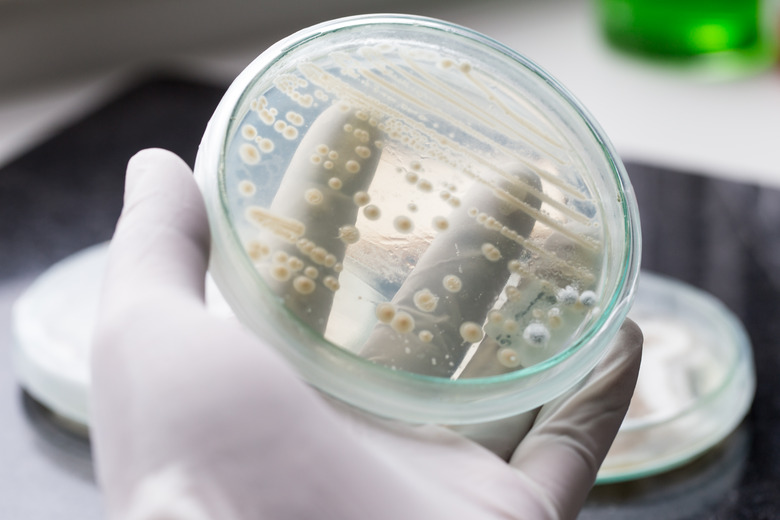What Would Happen If A Cell Did Not Have Golgi Bodies?
The Golgi body, also called the Golgi apparatus or Golgi complex, is found in most cells and looks like a stack of pancakes. As the distribution and shipping center for the cell's chemical products, the Golgi apparatus alters proteins and lipids and gets them ready for transport to other locations within or outside the cell.
TL;DR (Too Long; Didn't Read)
Without Golgi bodies, there would be no way for cells to prepare proteins and lipids for transport to other locations within or outside the cell. This would have a massive impact on body and plant organs. There would also be no lysosomes, which are responsible for breaking down waste products to keep the cell from dying quickly, and for initiating cell self-destruction when the organ needs to replace a cell. Without Golgi bodies, there would also be no way for the cell to produce a number of different macromolecules or transport enzymes out of the cell.
Missing Golgi Apparatus
Missing Golgi Apparatus
If there were no Golgi bodies, the proteins in cells would float around without direction. Other cells and organs in the body would not function properly without the products that the Golgi body normally sends. For example, a specific type of liver cell called a hepatocyte produces a protein in blood plasma called albumin. The albumin is made almost exclusively within the liver. The Golgi bodies in hepatocytes transport the albumin out of the liver to become part of the plasma portion of blood. The Golgi also transports VLDL (very low-density lipoproteins), a type of fatty acid, to be stored in adipose tissue (a storage site for fat).
No Lysosomes
No Lysosomes
Without a Golgi apparatus, there would be no lysosomes in a cell. Subsequently, the cell would not be able to digest or break down the materials left over from protein creation. This would create a lot of excess junk within the cell. If this happened, the cell wouldn't be able to live for very long. For example, once a white blood cell surrounds a bacterium, the lysosomes digest that bacteria. Lysosomes are also responsible for a process called autolysis, which a cell undergoes when it self-destructs. The autolysis process begins when the lysosomes rupture within the cell, digesting all of the cell's proteins. Autolysis is vital because it allows for an organism to remove worn-out cells.
Manufacture of Macromolecules
Manufacture of Macromolecules
The Golgi apparatus also manufactures a wide variety of macromolecules (large molecules), including polysaccharides (a long carbohydrate monosaccharide chain). The Golgi bodies within plant cells produce pectin and other polysaccharides necessary for structure and metabolism of the plant. So without the Golgi apparatus in plant cells, for example, the plants would not be able to function.
Source of Proteins
Source of Proteins
The rough endoplasmic reticulum (ER) create and send proteins to the Golgi apparatus. The ribosomes bound to the ER secrete enzymatic proteins meant for use in the body. Once a protein has been made, the rough ER then forms a bubble around the protein which then travels through the cytoplasm until it reaches the Golgi apparatus. This transition vesicle (which contains the proteins from the rough ER) is modified within the Golgi.
Cite This Article
MLA
Sobek, Jennifer. "What Would Happen If A Cell Did Not Have Golgi Bodies?" sciencing.com, https://www.sciencing.com/would-did-not-golgi-bodies-8657737/. 16 April 2018.
APA
Sobek, Jennifer. (2018, April 16). What Would Happen If A Cell Did Not Have Golgi Bodies?. sciencing.com. Retrieved from https://www.sciencing.com/would-did-not-golgi-bodies-8657737/
Chicago
Sobek, Jennifer. What Would Happen If A Cell Did Not Have Golgi Bodies? last modified March 24, 2022. https://www.sciencing.com/would-did-not-golgi-bodies-8657737/
